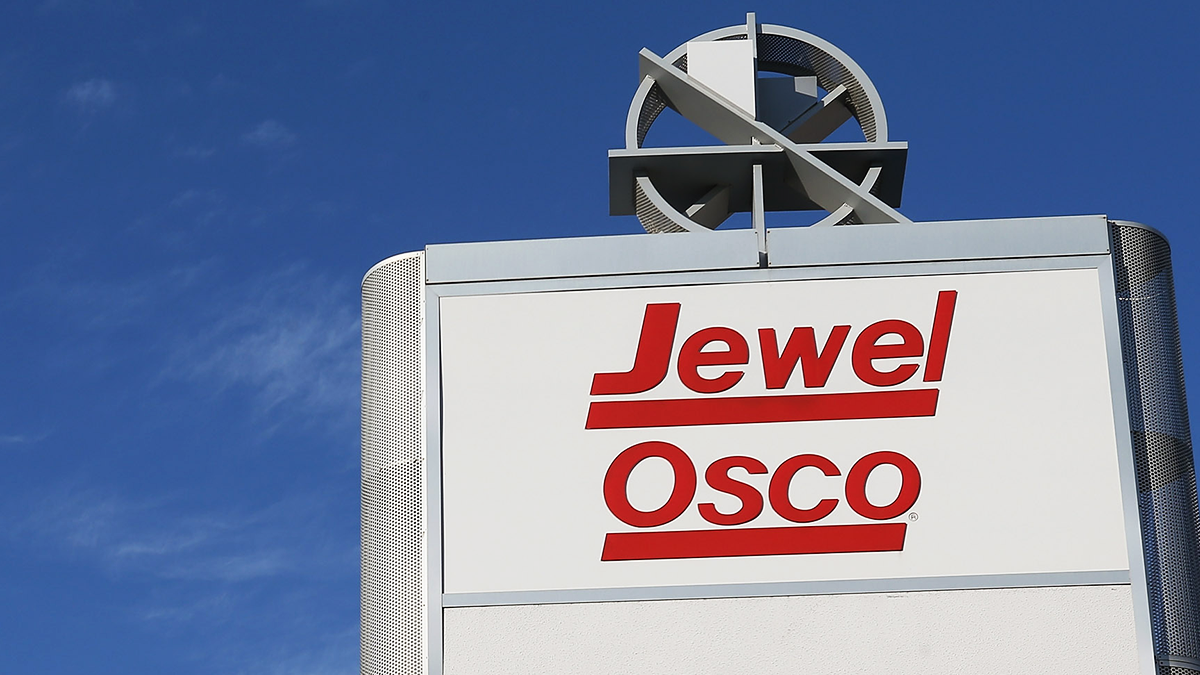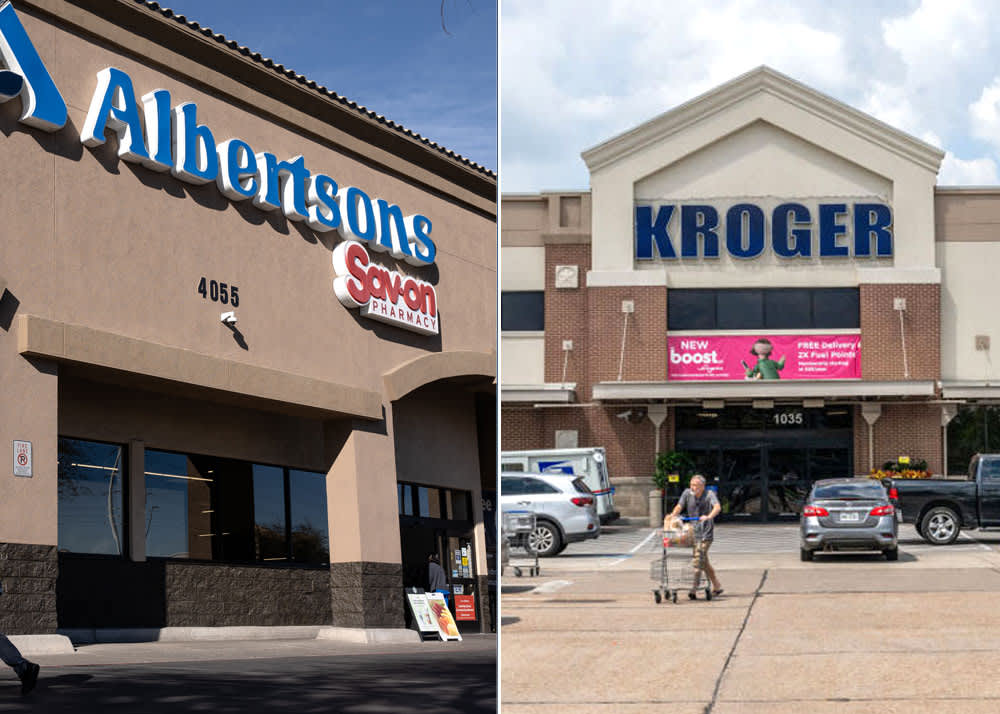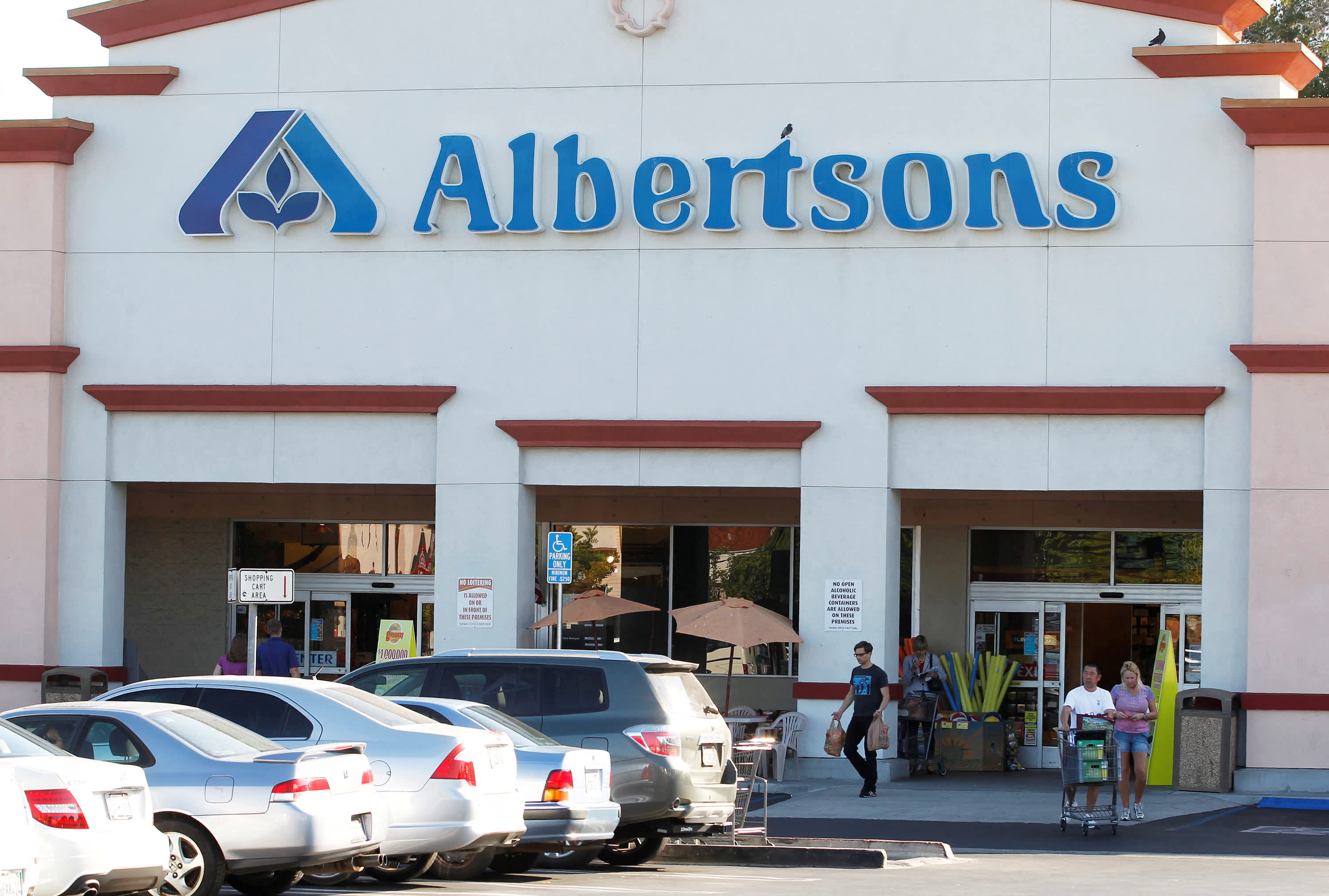A merger of two of the nation's largest grocery stores -- Kroger, which owns Mariano's, and Albertsons, which owns Jewel-Osco -- is drawing strong reaction on social media from regular shoppers of both stores.
"I don’t see anything good to come out of this deal for us," a comment on NBC 5 Chicago's Facebook post read. "Only higher prices."
"Kroger going to ruin Jewel now too like Mariano’s?" another read.
In an announcement Friday, Kroger said it has agreed to merge with Albertsons Companies Inc. According to the announcement, Kroger bid $20 billion, or $34.10 per share, for the rival grocer.
Feeling out of the loop? We'll catch you up on the Chicago news you need to know. Sign up for the weekly Chicago Catch-Up newsletter here.
Kroger will also assume $4.7 billion of Albertsons’ debt.
Albertsons shares had closed Thursday at $28.63 after surging on reports that a deal was imminent. According to CNBC, the deal is valued at $24.6 billion.
Both companies' boards unanimously approved the agreement, which will need regulatory approval. It's expected to close in early 2024.
Kroger is the second-largest grocer by market share in the United States, behind Walmart, and Albertsons is fourth, after Costco. Together, Kroger and Albertsons would be a closer second to Walmart.
Kroger, based in Cincinnati, Ohio, operates 2,800 stores in 35 states, including brands like Ralphs, Smith’s and Harris Teeter.
In the Chicago area, Kroger owns and operates Mariano's grocery stores.
Alberstons, based in Boise, Idaho, operates 2,220 stores in 34 states, including brands like Jewel-Osco, Shaw’s and Safeway.
Together the companies employ around 710,000 people.
The deal, likely to get heavy scrutiny from U.S. antitrust regulators -- especially at a time of high food price inflation -- is already causing a stir among Chicago area grocery shoppers, many of whom still feel the sting from when Chicago-area chain Dominick's stores closed. As a result, some long-standing Dominick's stores by the end of 2013 were reopened rebranded into Mariano's after the Milwaukee based brand stepped in.
"Now Jewel is going to be dragged down," one Facebook comment read. "We all know where Dominick's is now."
Together, the stores would control around 13% of the U.S. grocery market, assuming the sale or closure of around 400 stores for antitrust reasons, according to J.P. Morgan analyst Ken Goldman.
Still, that is a distant second to Walmart’s 22% share. Amazon, which bought Whole Foods in 2017, is also a growing player in the space, with 3% share. Warehouse store Costco controls 6%.
Goldman said a stronger combined company could possibly help tame food price inflation, since it would have more power to reject food producers’ price increases.
Kroger said would reinvest approximately $500 million into price reductions, and spend $1.3 billion updating Albertsons stores and $1 billion on higher employee wages and improved benefits.
But critics questioned a merger at a time of high food price inflation. Food prices rose 13% in September compared with last year, according to U.S. data released Thursday.
“A Kroger-Albertsons deal would squeeze consumers already struggling to afford food, crush workers fighting for fair wages and destroy independent, community stores,” said Sarah Miller, executive director of the American Economic Liberties Project, a nonprofit that supports stronger corporate accountability and antitrust measures.
It was no secret that Albertsons was thinking about selling the company. The chain announced in February that its board was reviewing options to enhance shareholder value, including developing new businesses or a sale.
And both Albertsons and Kroger themselves have grown into huge operations partially through acquisitions.
Albertsons was bought by a consortium of investors including Cerberus Capital Management, a private equity firm, in 2006. Cerberus helped finance Albertsons’ 2015 purchase of the Safeway grocery chain and attempted a failed merger with Rite Aid in 2018. Albertsons became a publicly traded company in 2020.
Cerberus currently holds nearly 30% of Albertsons shares. The merger deal includes a $4 billion dividend to Albertsons shareholders.
In 2015 alone, Kroger purchased four chains: Roundy’s, Pick ’N Save, Metro Markets and Mariano’s. It bought the meal kit company Home Chef in 2018.
Kroger has long outperformed Albertsons in key areas, including the development of store brands and advanced technology, said Neil Saunders, managing director of Global Retail Data, a market research company. Last year, for example, Kroger opened the first of 20 planned warehouses where robots help fulfill delivery orders.
The massive merger and its implications do not appear to be lost on Chicago-area grocery store shoppers.
"Almost a monopoly on the food supply," a Facebook comment reads. "What's the worst the can happen?"
The Associated Press contributed to this report.




